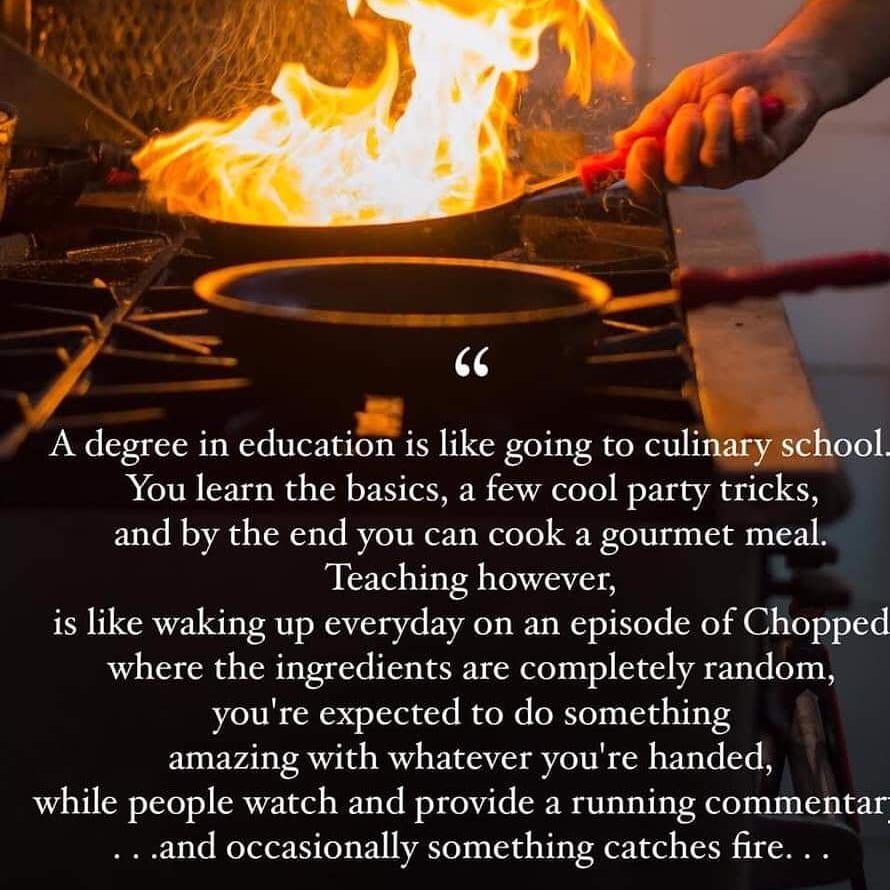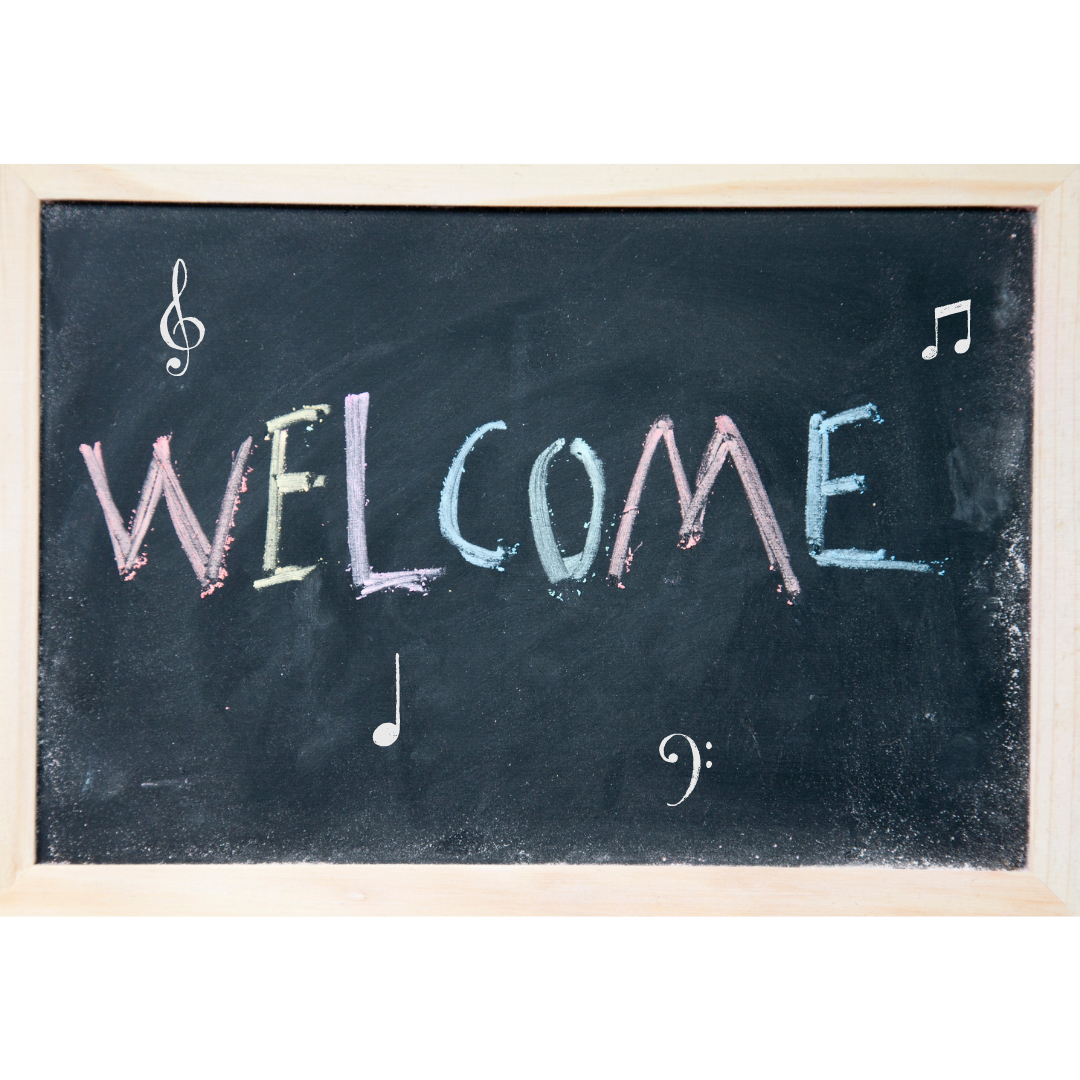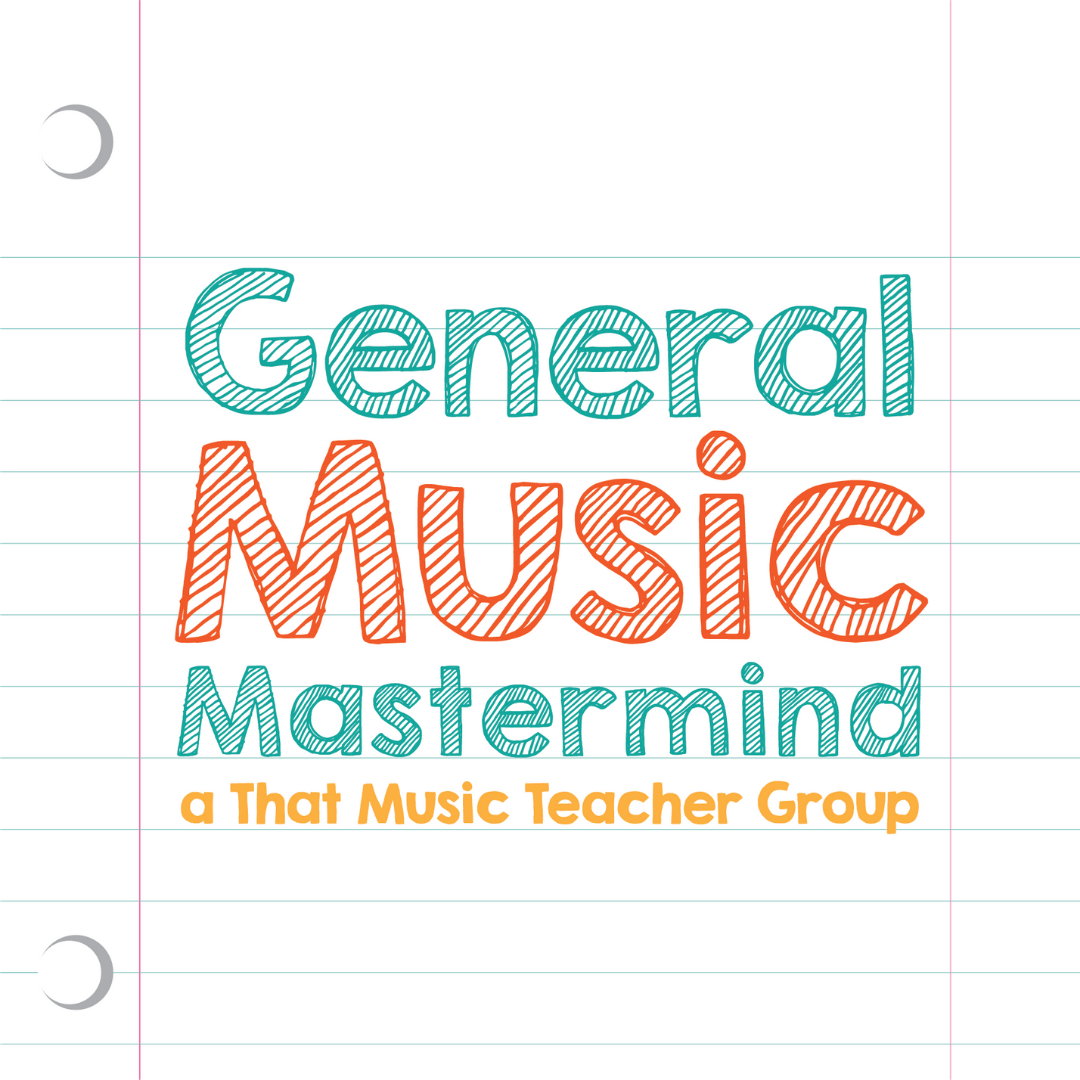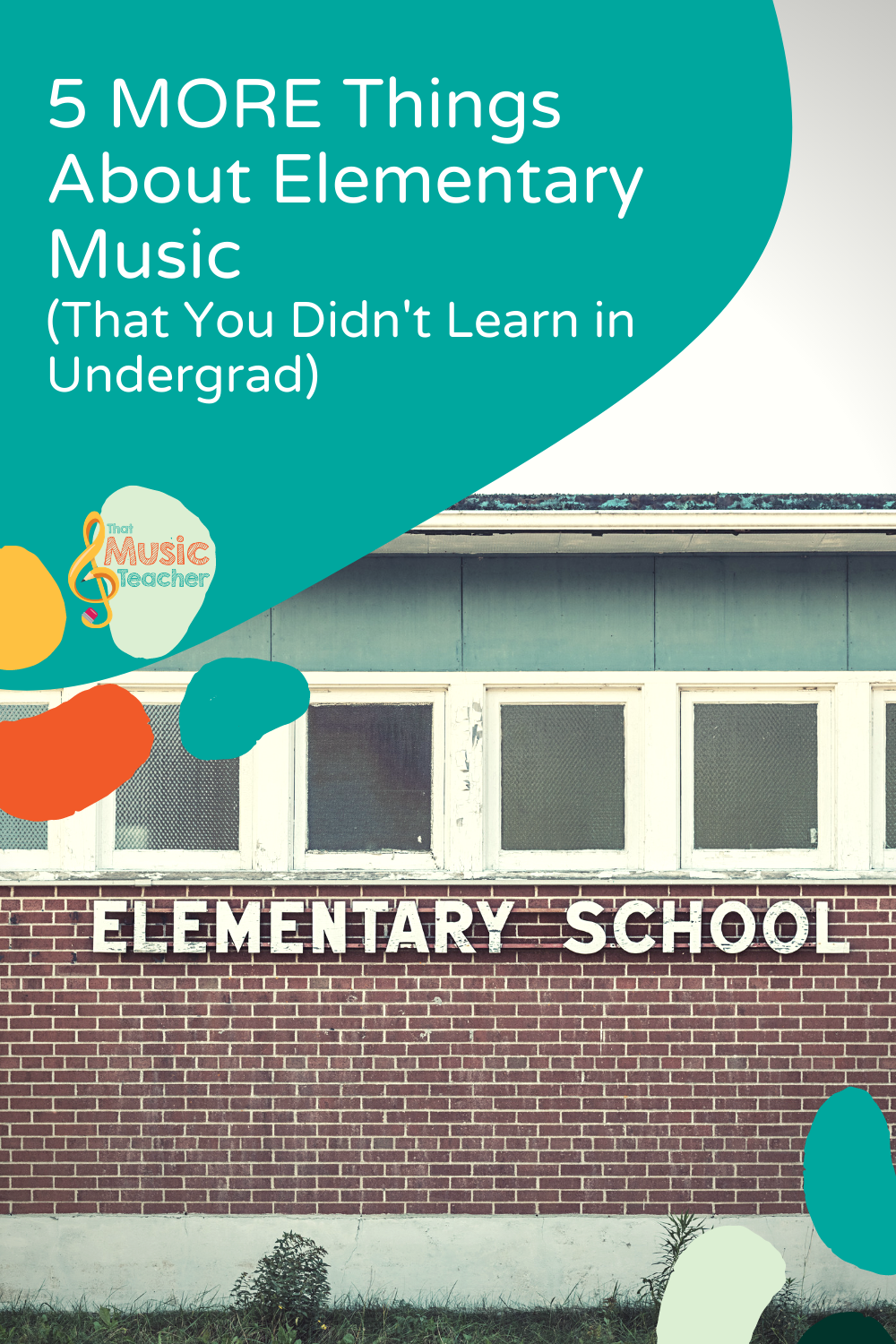
5 MORE Things About Elementary Music (That You Didn't Learn in Undergrad)
Feb 02, 2021
I often try to explain to my friends outside of the world of education what it is truly like to be an elementary music teacher. Sure, everyone has been to school and has some schema around what they believe it is like. However, I am constantly finding occasions where people continue to be flabbergasted by what they believe to be true and the reality of our job. It does not quite mix. The best representation I have seen of this recently was shared with me by my administrator. It is a meme that captures this difference impeccably!

(Author unknown)
Have truer words ever been written? I laughed. I cried. And, I considered how teachers get from the few basic party tricks we learn in undergraduate programs to the amazing music educators we have become! Although I can understand the confusion from people outside of the profession assuming they knew what was involved in teaching from their perspective as students, there are plenty of things that programs preparing pre-service teachers leave out. I assume this is because our job encompasses so much it would be hard to cover it all in 14 years let alone in the four or five years of a typical undergraduate program. But, I am here to tell you, there are some things that were left out nonetheless.
1. Teacher of ALL things
Elementary music teachers do A LOT more than just sing songs! I had participated in methods, and even student taught in an elementary music classroom my senior year, but it was not until I was setting up a safe and fun learning environment of my own that I realized how much of an elementary music teachers time goes into teaching compassion, empathy, kindness, respect, understanding of different cultures and other differences between learners in the classroom. Elementary music teachers are actually the teacher of all things using the vehicle of active music making as a tool for helping to grow students as learners and people.
2. All are Welcome Here
If you do not have this book in your personal collection of children’s books, RUN! Oh wait! I think that might be #6 for my list. They do not teach you that becoming an elementary music teacher also turns you into a children’s book lover/hoarder/connoisseur.

I read this particular book at the beginning of every year. I love the part that says “We’re part of a community. Our strength is our diversity. A shelter from adversity. All are welcome here.” The music room is truly a community where this statement is so true. What they do not teach you in undergrad is how HARD that can be. In order to serve all of the children within our classroom, not only do you need to be a teacher of all the things, but elementary music teachers need to be well versed in ways you can extend and modify curriculum to help to reach even the most exceptional of learners. It is a privilege and a challenge to find ways to make music accessible to all.
I have also learned through experience that it is helpful to have a firm understanding of the social emotional learning (SEL) that happens within your building as having students with behaviors that are not ideal for a classroom environment are part of every day life. It is really helpful to be able to use the language that they are taught in the SEL curriculum as additional tools in your toolbox. The art of deescalating situations that might arise during music makes the room a place all students want to be and can learn together. “You have a place here. You have a space here. All are welcome here.”
3. Teach to YOUR students
In your undergraduate work, you probably studied all the different methods of teaching elementary music. Kodaly, Orff, Dalcroze, Eurythmics, and many more! What they did not tell us is truly all your students need is YOU! Of course, understanding the history, the theory and common practice of each method is important. But, often each of these methods has to be tailored and delivered in a way that reaches the students at your school.
You are the one who makes learning come alive and provides experiences in music. You are the one who knows them best and can find ways for them to be their most musical selves. You are the example of a musician that they see in their day to day lives. You are the magic, not one method.
4. Always a Student
With that being said, you might have a diploma declaring you have completed an undergraduate program that allows you to be an elementary music educator but you are never done learning! Music, like methods, theories, and strategies, change with time. In my undergraduate program, I created this lovely binder of songs, lesson plans and a bunch of other treasures. But, I can tell you right now that the binder does not appear in the same state it once did because I have never stopped adding to it, readjusting, scratching things out and putting in the ideas of other elementary music teachers I have been able to learn from along the way. I did not realize when I graduated that teachers are never truly “done” but just switch to learning on the job instead of in a classroom.
I guess the plus side is there are not usually any tests to cram for! The knowledge you acquire by continuing to be a learner is knowledge that you can directly apply to your own classroom. However, the evaluation of students can sometimes be a little more direct than your professors gave!

Click here to join the General Music Mastermind Facebook group and connect with music educators from all walks of life
5. Be Your Own Advocate
I had the largest opportunity for growth as an elementary music educator when I had worked for a district for seven years and I was told by the director of HR that I was replaceable. All the programs, musicals, student and parent relationships I had built. All the learning I had done to include every student in my classroom. All the work I had done to continue learning to offer the best music education I could. All the time, energy and love I had given. But, I was replaceable. And, I was replaced when I moved to a different district who I hoped would value the professionalism I have acquired since I earned my undergraduate degree.
This experience reminded me that undergraduate degrees do not cover the basics of being an employed professional. Your salary, benefits, and how you are evaluated to show your effectiveness are also not covered in undergraduate programs but are really important in the life of educators. Politics, or more specifically, policies put in place are really important in the life of educators, too.
Because of all of these things, it is important as an educator to be your own advocate. Make sure you understand the details of the contracts you sign. Make sure you understand all the benefits you receive beyond pay and what is expected of you to receive those benefits. Understand and ask questions about the evaluation process. Don’t be afraid of having people in your classroom. In fact, invite people into your classroom to see all the amazing things you are doing. Promote events but also promote the day to day activities in your classroom to families and administrators. As an educator, you have to advocate for the work you do to shape the learners in your classroom.
Do not be shy about helping other people to see what it can mean to be an elementary music teacher. It is way more than what they see at the cute concerts you present.
Spoiler alert: I found a great place where I feel appreciated every day. I am still technically replaceable as there are many awesome elementary music educators out there but I hope I have made my place in the community one that makes a difference in more than just the four walls of my classroom by advocating for myself.
This is just the beginning of the list I am sure! I mean, I already added #6! What have you learned since completing your undergraduate program? What advice would you give to new music educators?
Reach out on social media to share your tips with @thatmusicteacher or myself, @k8tmusicmiller
This article was submitted by Katherine Miller contributing author for ThatMusicTeacher.com. Interested in becoming a contributing author? Email resume and writing sample to [email protected]

Don't miss a beat!
New moves, motivation, and classes delivered to your inbox.
We hate SPAM. We will never sell your information, for any reason.

